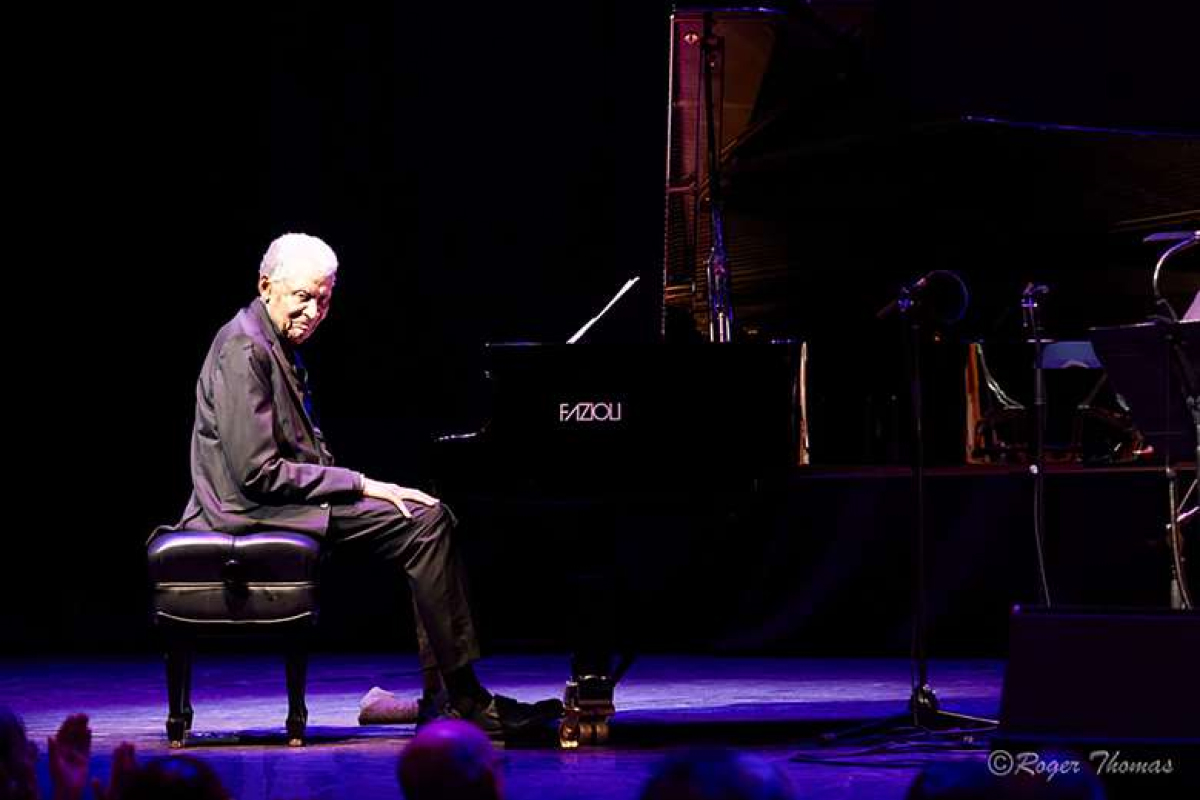From Jazzwise
The maestro sings. It is one of the most unexpected yet deeply moving encores in recent memory, not least because of the intense drama created by the sight as well as the sound of Abdullah Ibrahim. At 88 years-old the South African legend needs the reassuring shoulders of his assistant as well as those of bassist Noah Jackson and flautist Cleave Guyton, as he steadies himself after rising from the piano stool following an absorbing 90 minutes that also brings a receptive audience to its feet.
On stage the four figures form what looks like a barbershop vocal quartet and Ibrahim intones a heartbreaking lament, initially in an indigenous language before continuing in English. His voice cracks on a tale of going home and escaping the dread of the slaveship, the melody sounding like the oldest and perhaps most unknown of Negro Spirituals. It is a powerful summary of an evening of many overlapping histories.
Ibrahim’s enduring love of the founding fathers of modern jazz is made clear from the outset as the trio starts with rhapsodic versions of two timeless anthems, Ellington’s ‘In A Sentimental Mood’ and Coltrane’s ‘Giant Steps’, while later on we are treated to a spirited take on Monk’s ‘Skippy’. But in the interim it is Ibrahim’s originals that take pride of place, showing how, since the ‘60s, he has been creating standards of his own that vividly capture the poised dignity of African culture and customs. ‘Water From An Ancient Well’ is simply captivating. The combination of the gentle sway of the melody and airy caress of chords imbues the song with a lyricism that distills South African choral and dance traditions in the most finessed of ways, as if the whole point is to let every sound breathe all the while tightly centering the arrangement.
The absence of drums makes the beauty of Ibrahim’s touch all the more apparent, and there is a particularly liquid character, an almost constant ripple in the middle register chords, that marks his masterworks, above all ‘The Wedding.’ Although the trio is an effective unit it breaks into duos regularly and Ibrahim also launches into a solo section before the return of his accompanists at various junctures. Yet for all the sensitivity of the material there are moments of driving energy that also suggest how effective the songs would be if a bigger band were present. Jackson and Guyton are both members of Ibrahim’s longstanding ensemble Ekaya and the hard-hitting chromatic runs of the former and withering, Rahsaanish hollers of the latter have a controlled ferocity that provides an effective complement to the prevailing tranquility of the evening. Ibrahim has been negotiating this spectrum his whole life. As the closer ‘Dream Time’ underlines, he continues to give us precious time to dream.
